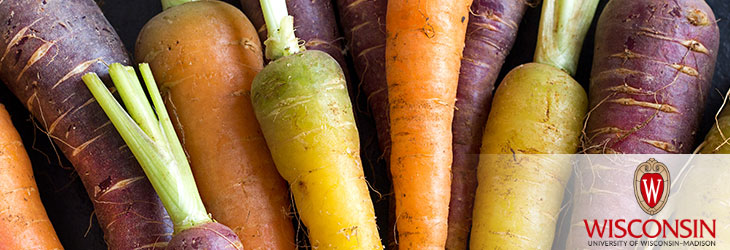Animals, Agriculture & Food

Tannins Boost Gastrointestinal Immunity
WARF: P120201US02
Inventors: Jess Reed, Dhanansayan Shanmuganayagam, Christian Krueger, Kenneth Kudsk, Joseph Pierre, Aaron Heneghan, Rodrigo Feliciano
The Wisconsin Alumni Research Foundation (WARF) is seeking commercial partners interested in developing tannin formulations to counter GI tract impairment in tube and intravenously fed patients.
Overview
The mucosal layer of the gastrointestinal (GI) tract acts as a physical and chemical barrier against food, environmental antigens and resident bacteria. Many factors interact and affect the barrier, including glycoproteins and antimicrobial molecules. How a person eats also plays a role. Parenteral (intravenous) or enteral (tube) feeding weakens the barrier and can reduce commensal or “good” bacterial diversity within the gut. This puts patients at higher risk for infection and other complications.
One source of relief could be tannins, which are natural compounds found in foods like cranberries, wine and chocolate. Tannins are known to have favorable health properties, but less is known about their effect on intestinal function. Since their chemical nature makes them slow to be absorbed, tannins could have long-lasting benefits for the GI tract.
One source of relief could be tannins, which are natural compounds found in foods like cranberries, wine and chocolate. Tannins are known to have favorable health properties, but less is known about their effect on intestinal function. Since their chemical nature makes them slow to be absorbed, tannins could have long-lasting benefits for the GI tract.
The Invention
UW–Madison researchers have developed tannin-based formulations to counteract or prevent the gastrointestinal problems associated with parenteral/enteral feeding. The researchers discovered that various types of tannins, including proanthocyanidins and hydrolysable tannins, promote mucosal barrier strength and immunity.
The formulations can take solid or liquid form, and may include other nutrients like sugars, amino acids, lipids and vitamins.
The formulations can take solid or liquid form, and may include other nutrients like sugars, amino acids, lipids and vitamins.
Applications
- Nutritional preparations for feeding-compromised patients
- Pancreatitis, Crohn’s disease, sepsis, trauma, burn, surgery, restricted diet and intensive care patients
Key Benefits
- Boosts GI tract immunity and integrity
- Safe and flexibly administered
- Potentially long-lasting benefits
- Reduces the risk of complications associated with artificial feeding
Stage of Development
Cranberry tannins have been shown to promote microbiota diversity, intestinal goblet cells and secretory immunoglobulin-A (sIgA) levels in tube-fed mice.
Additional Information
For More Information About the Inventors
Related Technologies
Related Intellectual Property
For current licensing status, please contact Emily Bauer at [javascript protected email address] or 608-960-9842